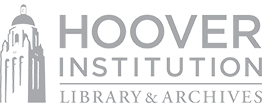Civil Discourse
Highlights from Firing Line
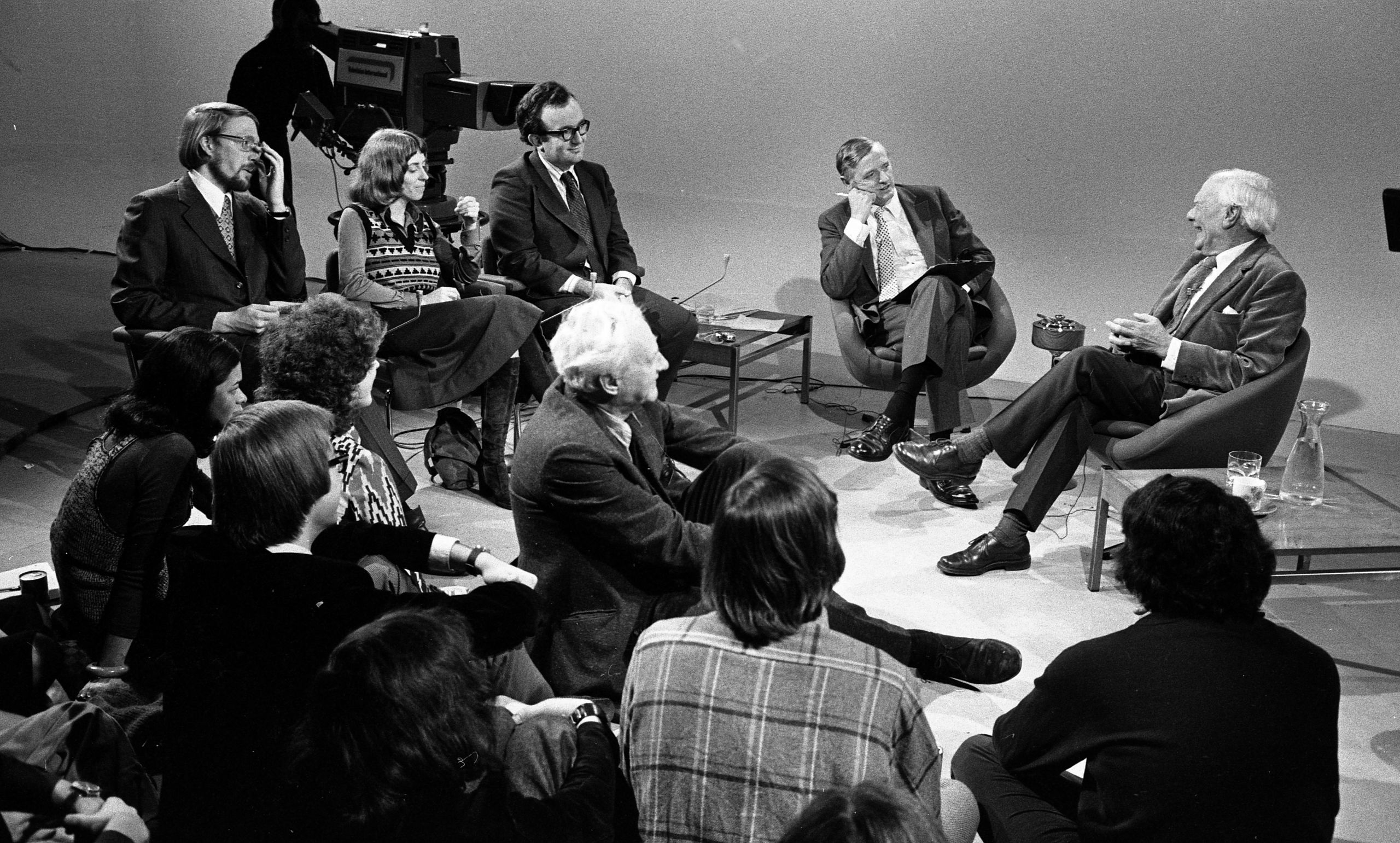
When Firing Line began broadcasting in 1966, few would have predicted that a public affairs program hosted by a leader of modern American conservatism and the founder and publisher of the magazine National Review would capture an audience beyond the conservative faithful. The show featured conversations between William F. Buckley Jr. and the world's leading figures in politics, entertainment, journalism, and academia, and became an overnight success. With 1,505 episodes airing over thirty-three years, Firing Line first revolutionized, then set the standard, for televised public affairs shows.
Buckley conceived the show not as an interview program or a series of debates but rather as an "exchange of opinions." Buckley was most interested in hosting respectful and lively discussions with politicians, activists, economists, writers, scholars, actors, and public figures whose opinions ranged across the political and ideological spectrum. Prominent guests who appeared on Firing Line included Ronald Reagan, Margaret Thatcher, Muhammad Ali, Allen Ginsberg, Milton Friedman, Joan Baez, Truman Capote, Jesse Jackson, Betty Friedan, and Norman Mailer. In Buckley's view, Firing Line was "the only program on the air that gives to presidents and poets a full hour in which to disclose themselves."
In this compilation video, Buckley describes the concept behind Firing Line in his own words. This video also showcases some of the show's most notable guests.
Firing Line's civilized tone would become its trademark, with the host rarely allowing his ideological differences with his guests to become personal. Guests were allowed to answer Buckley's questions at length, expressing their thoughts in depth over the course of the conversation. Although the pace was leisurely, it was often enlivened by quick verbal parrying and witty, sarcastic asides. Deliberations of weighty matters were frequently lightened by humor, especially the subtle wordplay Buckley relished.
Beginning in 1978, occasional specials and two-hour debates were interspersed among the regular shows. The debate shows were formalized with opening statements, cross-examinations, and closing statements and included multiple guests representing different sides of the featured issues.
Firing Line's final episode aired December 14, 1999, but its influence is still felt today. The exchanges between Buckley and his guests explored the most important ideas and events of the latter half of the twentieth century, many of which influence contemporary issues. The success of the show proved that televising the civil exchange of conflicting but considered opinions could serve to entertain, inform, and, ultimately, influence public opinion in America.
The Hoover Institution Library & Archives houses and preserves the expansive Firing Line Broadcast Records, which includes administrative files, program preparation materials, photographs, transcripts, sound recordings, and videotapes of the programs. The collection, which is open to the public, serves as an invaluable tool for understanding the social, political, and economic changes that marked the end of the twentieth century.
To highlight the significance of this collection, the Hoover Institution Library & Archives presents a series of curated selections that showcase some of the most pivotal and interesting moments on Firing Line.
Images:
William F. Buckley Jr., undated
Margaret Thatcher, July 25, 1977, Program S0288
William F. Buckley Jr. and James Buckley, September 4, 1974, Program S0152
Michael Kinsley and Heather A. Wilson, March 8, 1993, Program FLS115
Thomas Sowell, November 3, 1983, Program S0573
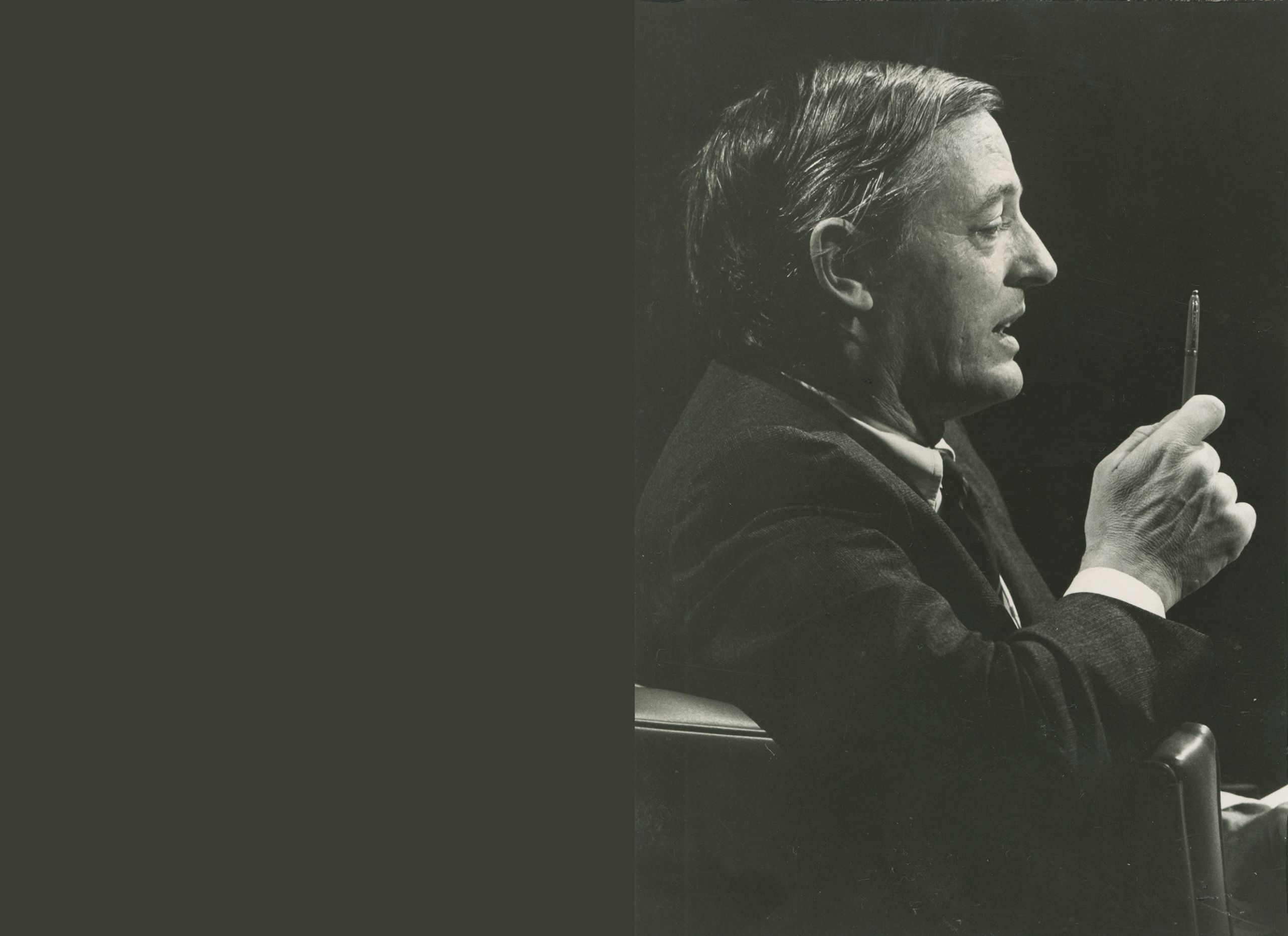
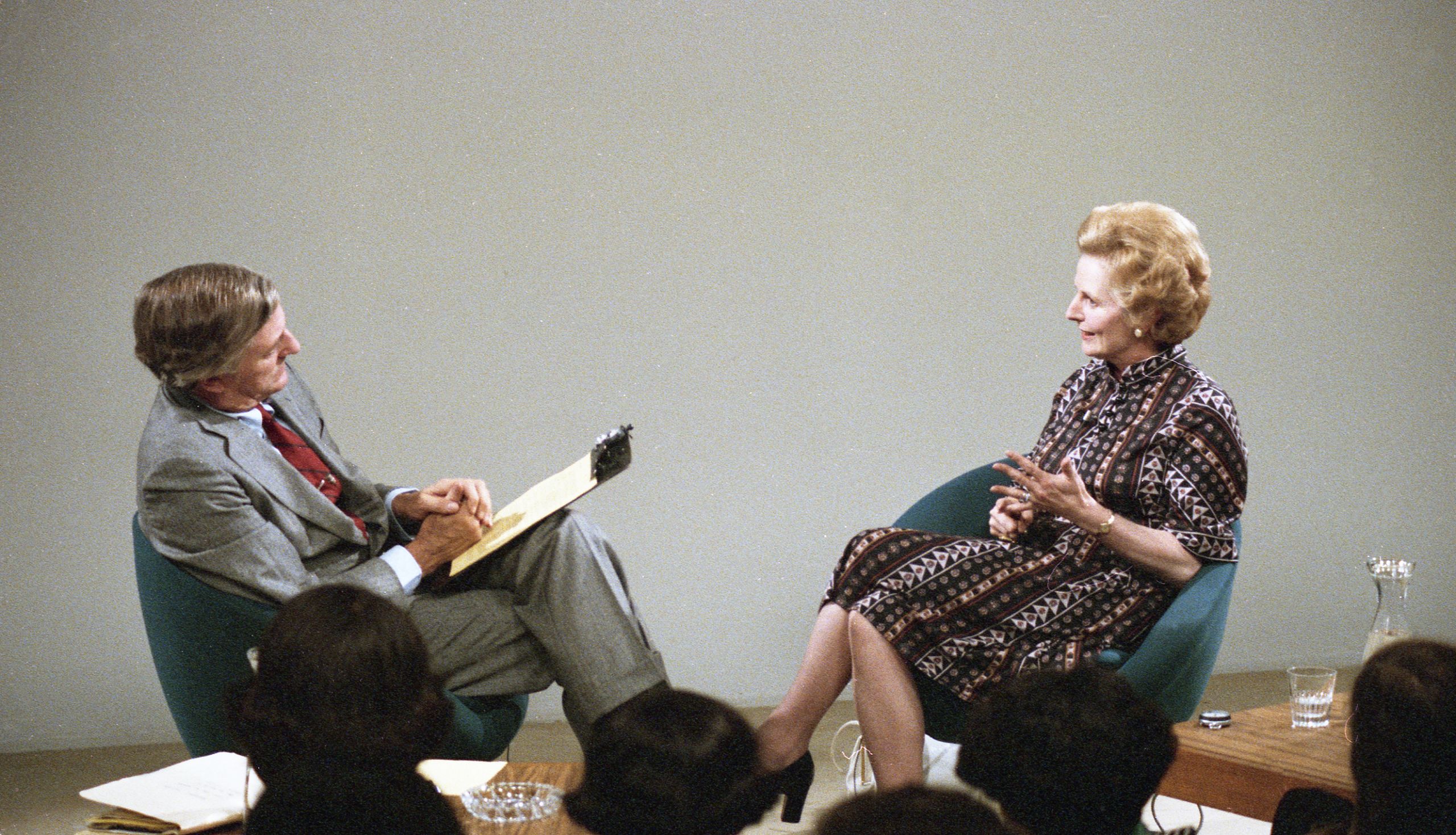
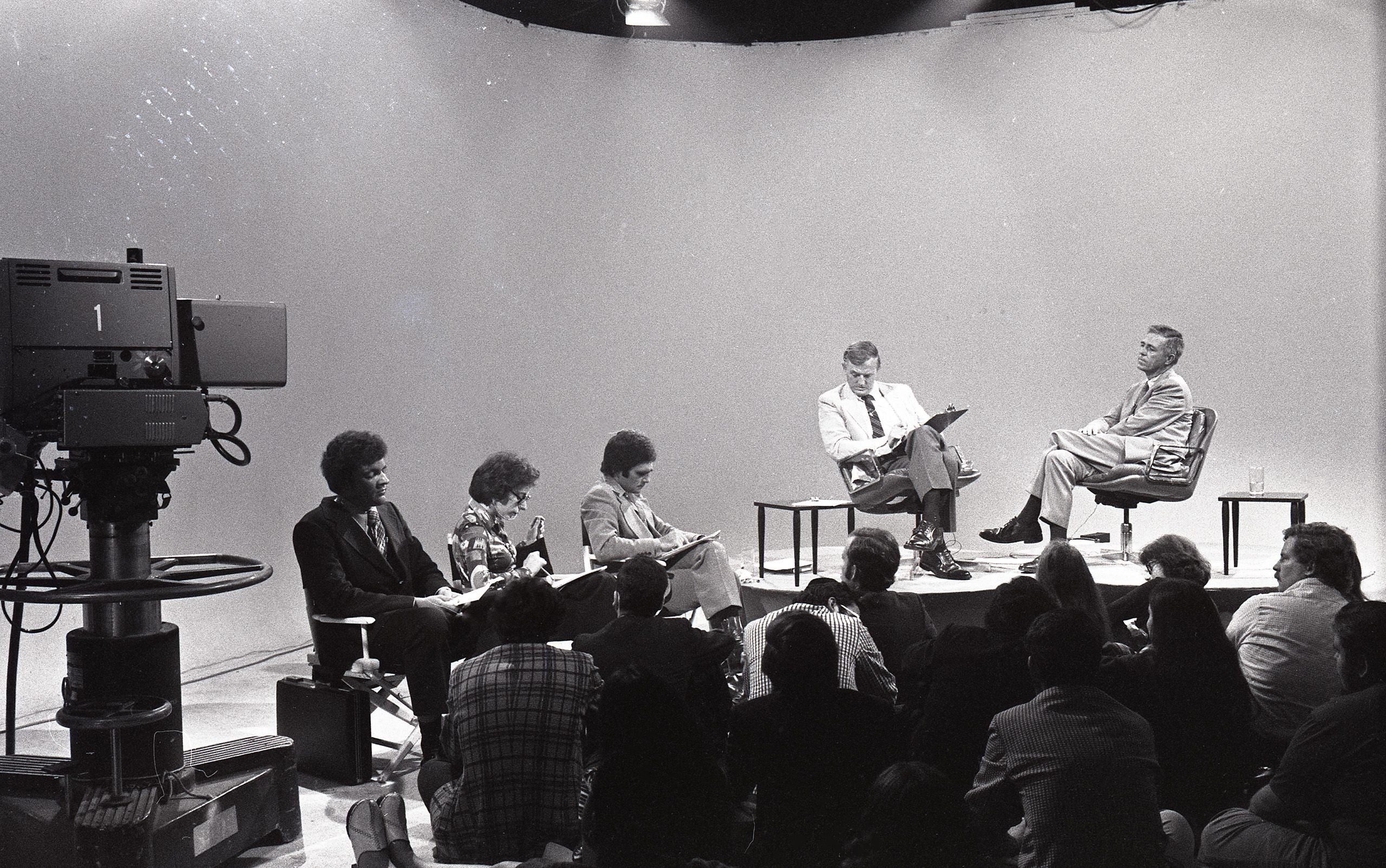
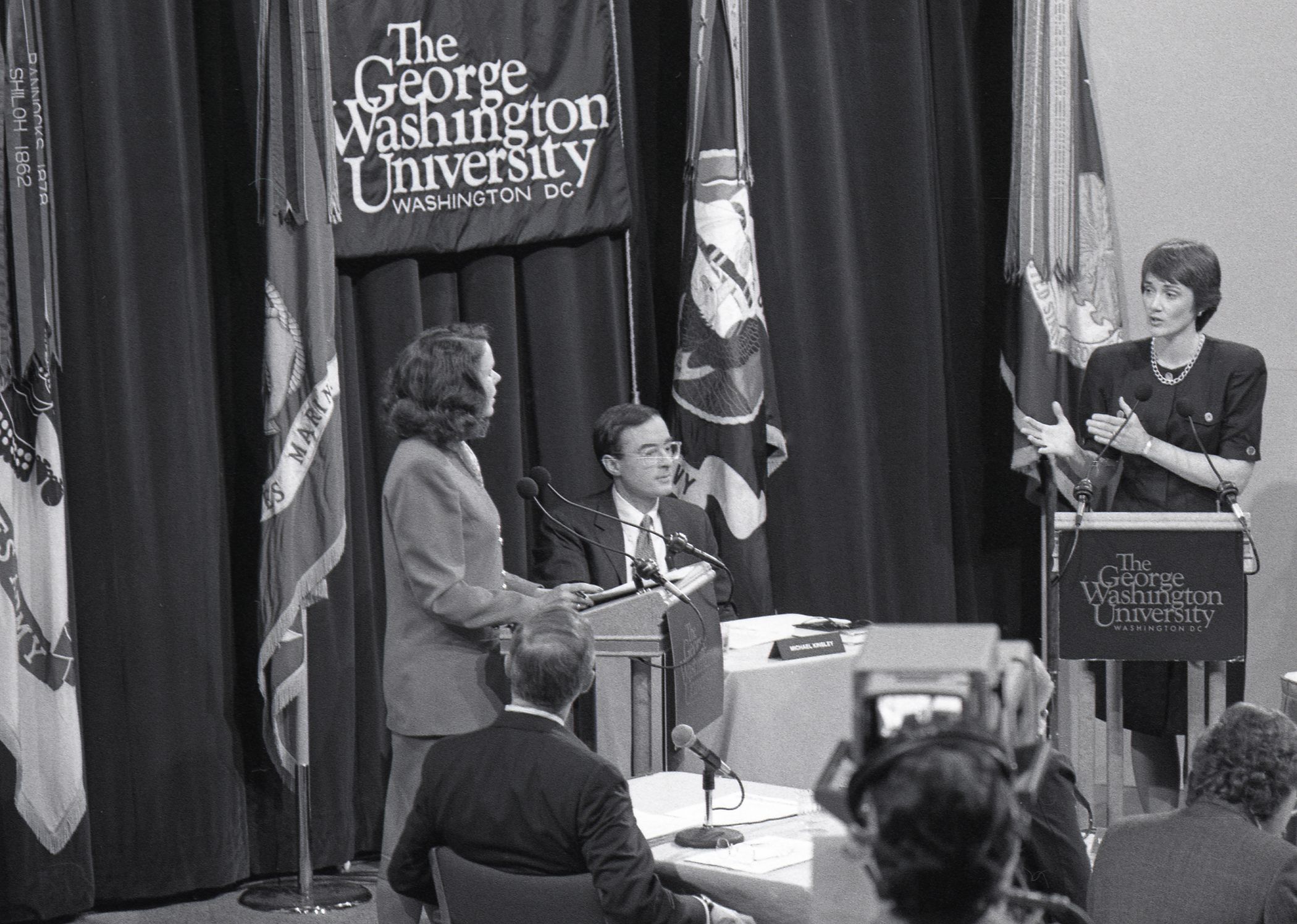
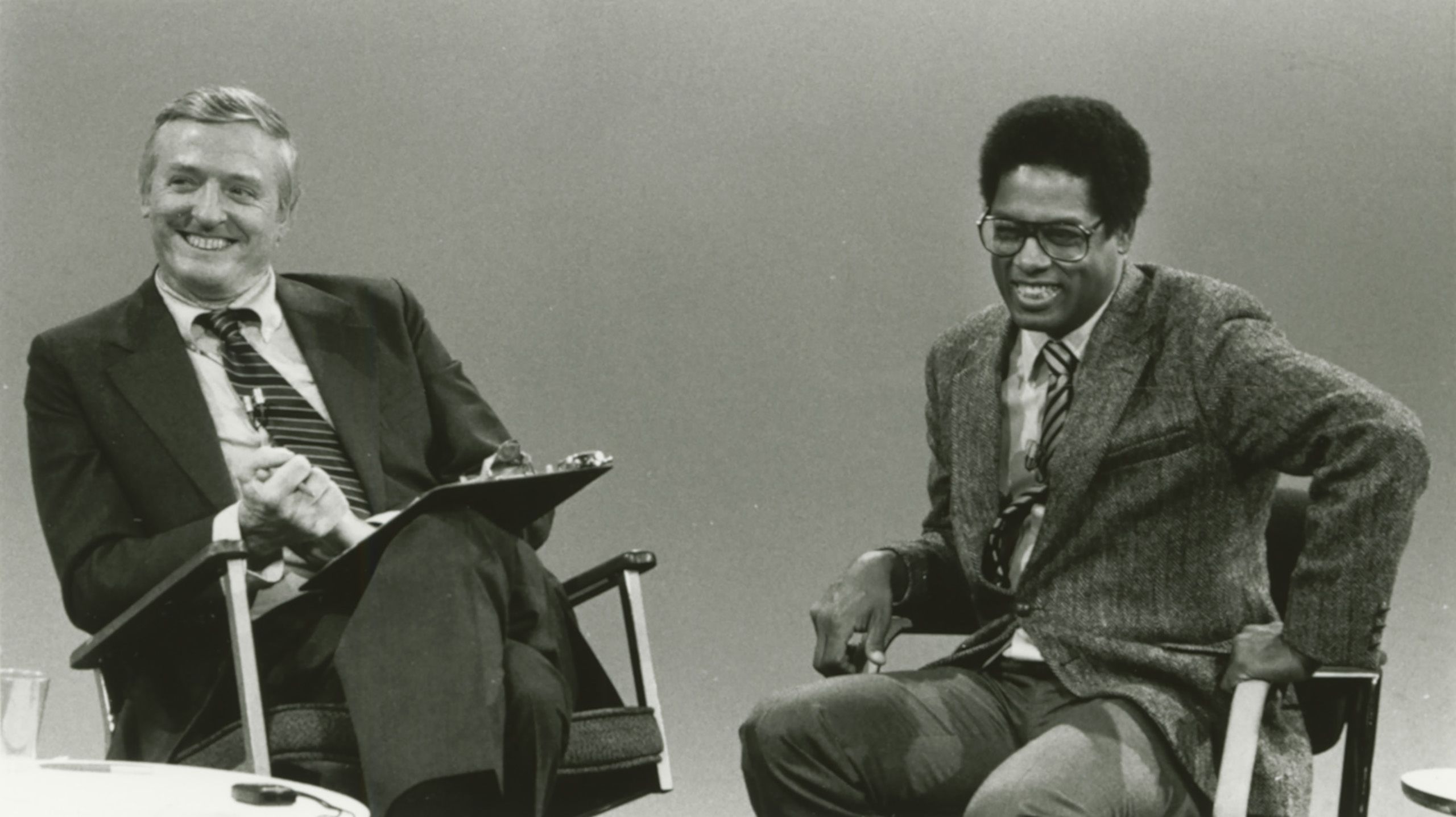
When Firing Line began broadcasting in 1966, few would have predicted that a public affairs program hosted by a leader of modern American conservatism and the founder and publisher of the magazine National Review would capture an audience beyond the conservative faithful. The show featured conversations between William F. Buckley Jr. and the world's leading figures in politics, entertainment, journalism, and academia, and became an overnight success. With 1,505 episodes airing over thirty-three years, Firing Line first revolutionized, then set the standard, for televised public affairs shows.
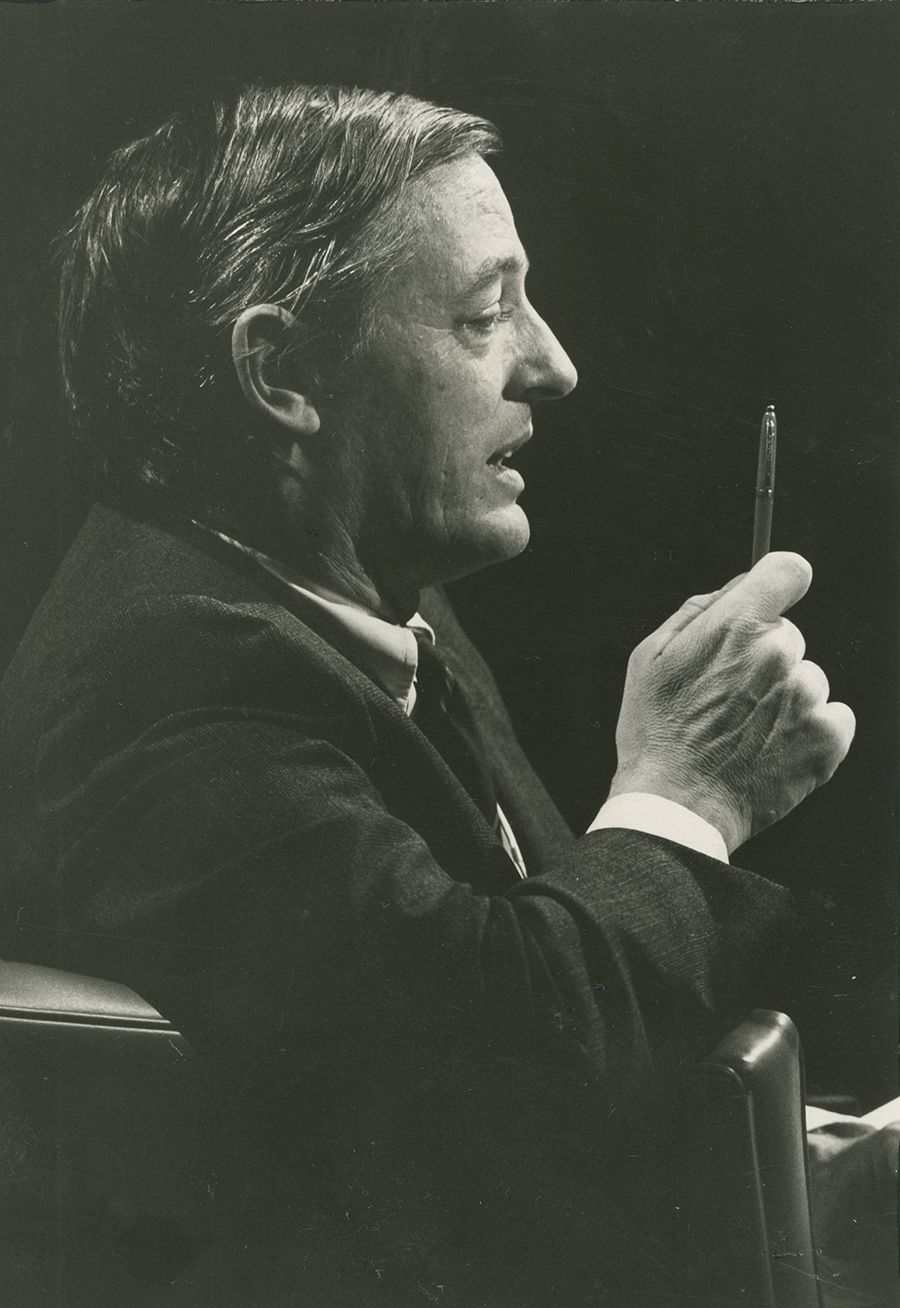
William F. Buckley Jr., undated
William F. Buckley Jr., undated
Buckley conceived the show not as an interview program or a series of debates but rather as an "exchange of opinions." Buckley was most interested in hosting respectful and lively discussions with politicians, activists, economists, writers, scholars, actors, and public figures whose opinions ranged across the political and ideological spectrum. Prominent guests who appeared on Firing Line included Ronald Reagan, Margaret Thatcher, Muhammad Ali, Allen Ginsberg, Milton Friedman, Joan Baez, Truman Capote, Jesse Jackson, Betty Friedan, and Norman Mailer. In Buckley's view, Firing Line was "the only program on the air that gives to presidents and poets a full hour in which to disclose themselves."
In this compilation video, Buckley describes the concept behind Firing Line in his own words. This video also showcases some of the show's most notable guests.
Firing Line's civilized tone would become its trademark, with the host rarely allowing his ideological differences with his guests to become personal. Guests were allowed to answer Buckley's questions at length, expressing their thoughts in depth over the course of the conversation. Although the pace was leisurely, it was often enlivened by quick verbal parrying and witty, sarcastic asides. Deliberations of weighty matters were frequently lightened by humor, especially the subtle wordplay Buckley relished.
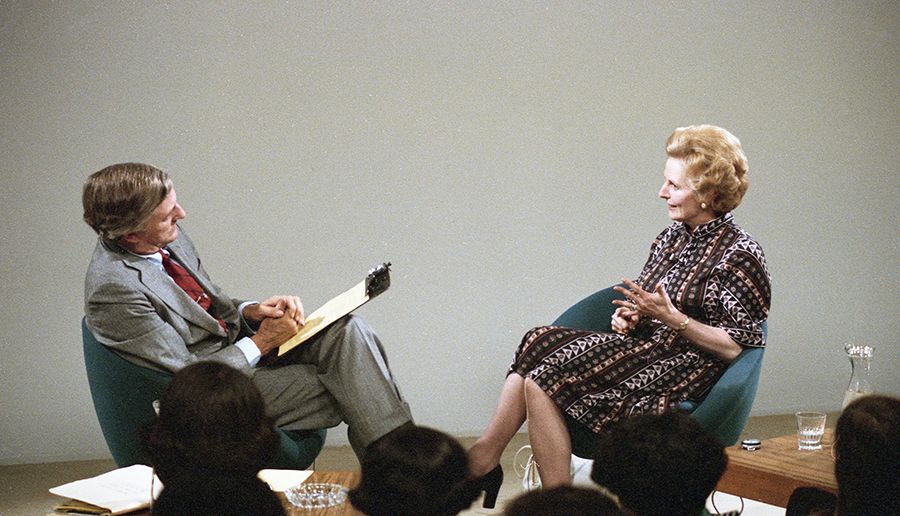
William F. Buckley Jr. and Margaret Thatcher, July 25, 1977, Program S0288
William F. Buckley Jr. and Margaret Thatcher, July 25, 1977, Program S0288
Beginning in 1978, occasional specials and two-hour debates were interspersed among the regular shows. The debate shows were formalized with opening statements, cross-examinations, and closing statements and included multiple guests representing different sides of the featured issues.
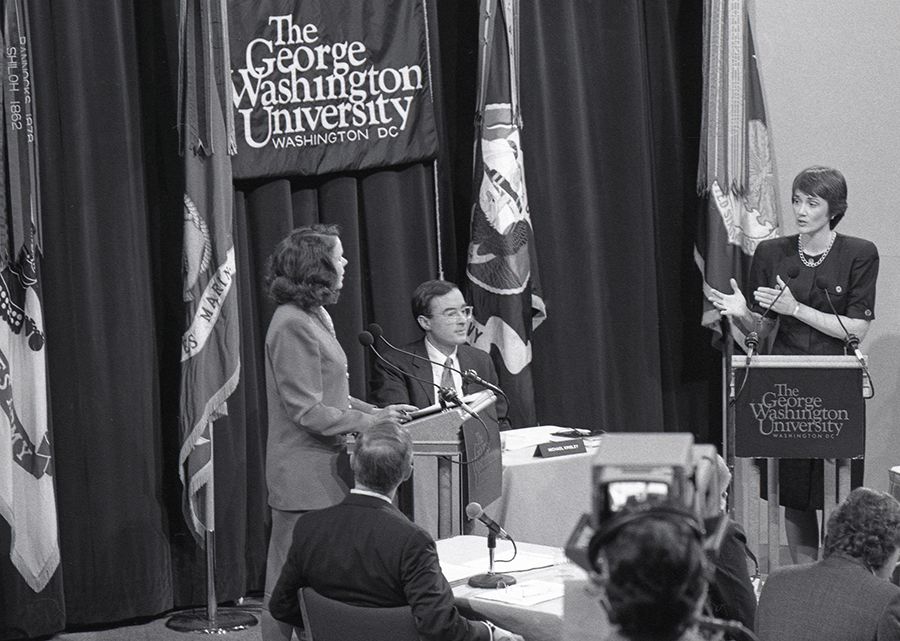
Elaine Donnelly, Michael Kinsley, and Heather A. Wilson, March 8, 1993, Program FLS115
Elaine Donnelly, Michael Kinsley, and Heather A. Wilson, March 8, 1993, Program FLS115
Firing Line's final episode aired December 14, 1999, but its influence is still felt today. The exchanges between Buckley and his guests explored the most important ideas and events of the latter half of the twentieth century, many of which influence contemporary issues. The success of the show proved that televising the civil exchange of conflicting but considered opinions could serve to entertain, inform, and, ultimately, influence public opinion in America.
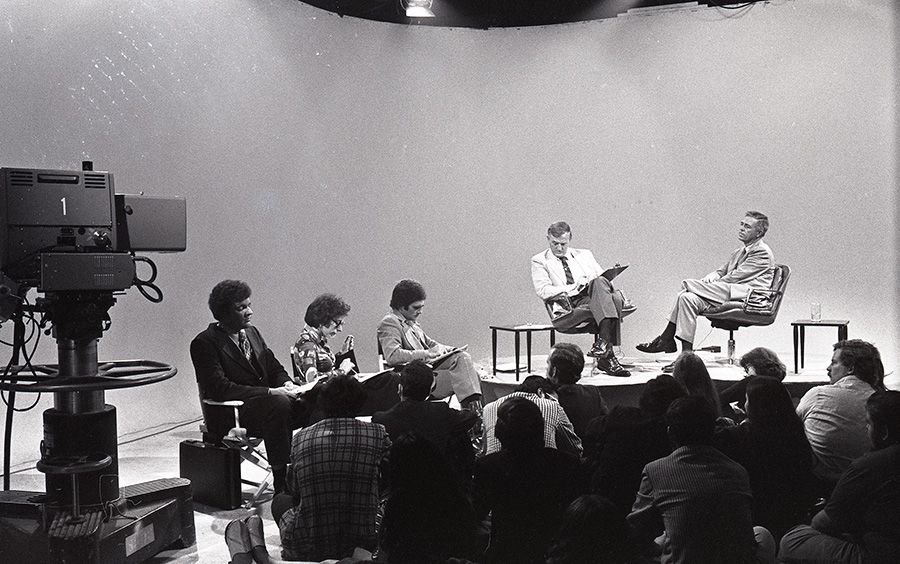
William F. Buckley Jr. and James Buckley, September 4, 1974, Program S0152
William F. Buckley Jr. and James Buckley, September 4, 1974, Program S0152
The Hoover Institution Library & Archives houses and preserves the expansive Firing Line Broadcast Records, which includes administrative files, program preparation materials, photographs, transcripts, sound recordings, and videotapes of the programs. The collection, which is open to the public, serves as an invaluable tool for understanding the social, political, and economic changes that marked the end of the twentieth century.
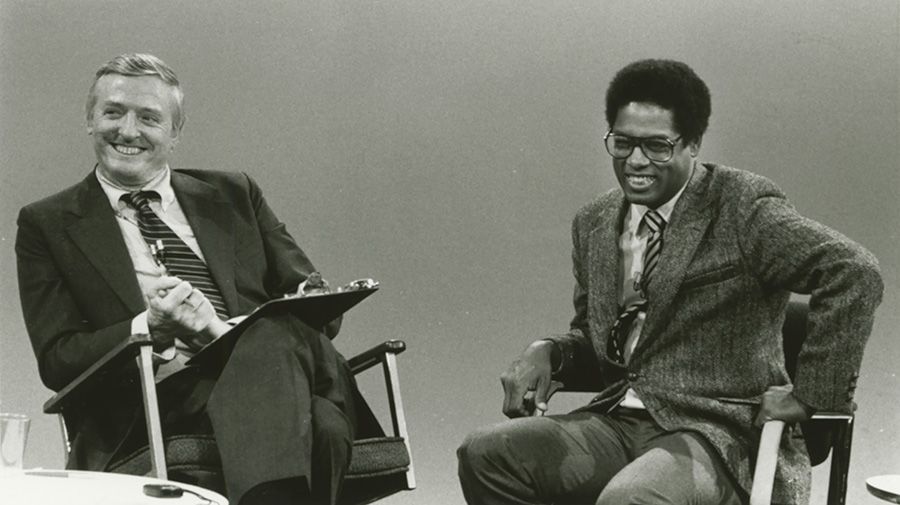
William F. Buckley Jr. and Thomas Sowell, November 3, 1983, Program S0573
William F. Buckley Jr. and Thomas Sowell, November 3, 1983, Program S0573
To highlight the significance of this collection, the Hoover Institution Library & Archives presents a series of curated selections that showcase some of the most pivotal and interesting moments on Firing Line.

Unless otherwise noted, all collection material shared in this presentation is part of the Firing Line broadcast records housed at the Hoover Institution Library & Archives, Stanford University.
The Hoover Institution Library & Archives has placed copies of these works online for educational and research purposes. If you would like to use any of these works, you are responsible for making your own legal assessment and securing any necessary permission. If you have questions about this resource or have concerns about the inclusion of an item, please contact the Hoover exhibits team:
Contact Us
For more information about rights and permissions please visit, https://www.hoover.org/library-archives/collections/get-help/rights-and-permissions.
© 2022 by the Board of Trustees of Leland Stanford Junior University.
